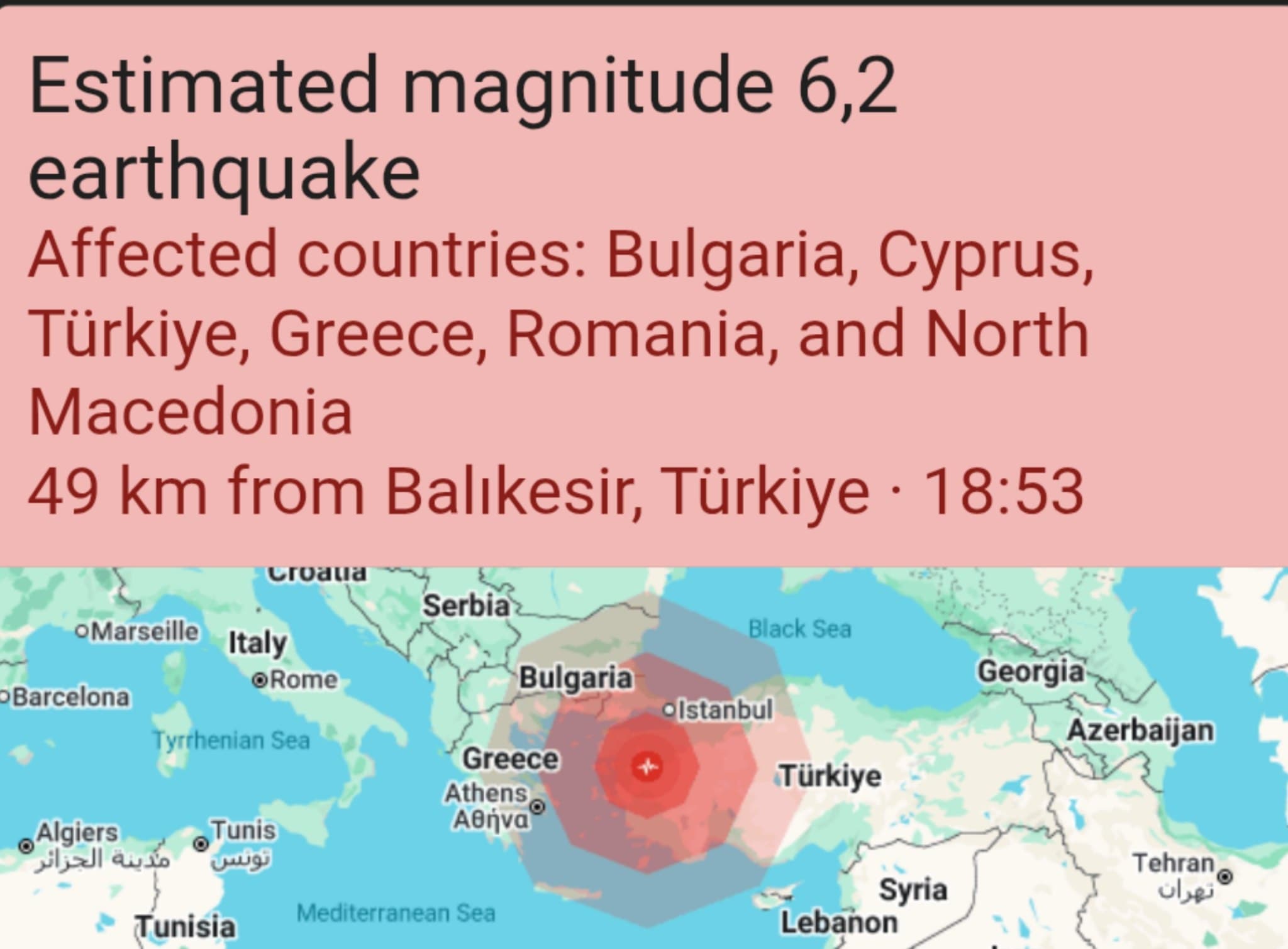6.2 Magnitude Earthquake Strikes Türkiye, Shaking Neighboring Regions and Raising Alarm
A powerful 6.2 magnitude earthquake struck Türkiye on the evening of October 23, 2023, with its epicenter located approximately 49 kilometers from Balıkesir, in eastern Türkiye. The tremor was felt across several bordering nations, including Bulgaria, Cyprus, Greece, Romania, and North Macedonia, prompting widespread concern and emergency preparedness efforts.
Background & Context
Türkiye is situated in a seismically active region, with a long history of earthquakes due to its position on the complex boundary between the Eurasian and Arabian tectonic plates. This latest earthquake serves as a stark reminder of the ongoing geological risks faced by the nation and its neighbors. The 6.2 magnitude quake, reported around 7:45 PM local time, follows a series of smaller tremors that have been recorded in the region over the past few weeks, raising questions about potential foreshocks and the need for enhanced geological monitoring.
Key Developments
Initial reports from the Turkish Disaster and Emergency Management Authority (AFAD) indicated that the earthquake was felt most strongly in Balıkesir and surrounding provinces. Local authorities have activated emergency response protocols, with teams deployed to assess structural damage and provide assistance to affected residents. As of now, there have been no confirmed reports of casualties, but the situation remains fluid as assessments continue.
The earthquake"s impact was felt across the Aegean and Marmara regions, with residents reporting strong shaking that lasted several seconds. Social media platforms were flooded with posts from individuals sharing their experiences during the quake. Many described moments of panic and confusion as they evacuated buildings and sought safety in open areas. The earthquake was also felt in neighboring countries, leading to a surge in emergency alerts and precautionary measures.
Broader Impact
The implications of this earthquake extend beyond immediate physical damage. Experts are concerned about the psychological effects on residents, particularly given Türkiye"s past experiences with devastating earthquakes, notably the 1999 İzmit earthquake, which resulted in significant loss of life and property. Trauma from historical events can resurface, affecting community resilience and mental health.
In addition to the immediate response, this earthquake raises questions about the adequacy of building codes and disaster preparedness in Türkiye and its neighbors. Countries in the region have made strides in improving infrastructure and emergency response systems since past seismic events, but this quake may prompt renewed discussions on strengthening these efforts further. As previously reported, the ongoing geopolitical tensions in the region complicate response coordination and resource allocation in the aftermath of such natural disasters.
What"s Next
In the coming days, local authorities will be conducting detailed assessments of the damage and determining the need for international assistance. Emergency services are on high alert, and residents are urged to remain vigilant for aftershocks, which are common following significant earthquakes. The Turkish government has also indicated that it will be closely monitoring the situation and coordinating with neighboring countries to ensure a comprehensive response.
The earthquake"s occurrence during a period of heightened political tensions in the region adds another layer of complexity to the response efforts. As nations assess their readiness to handle natural disasters, there may be discussions about collaborative initiatives aimed at improving collective resilience against seismic events. The situation remains dynamic, and updates will be provided as more information becomes available.


![[Video] Heavy clashes and gunfire reported in Baghdad, Iraq](/_next/image?url=%2Fapi%2Fimage%2Fthumbnails%2Fthumbnail-1768342239932-848qsh-thumbnail.jpg&w=3840&q=75)




![[Video] Gunfire between Iraqi security forces and Sadr militias in Baghdad](/_next/image?url=%2Fapi%2Fimage%2Fthumbnails%2Fthumbnail-1768343508874-4redb-thumbnail.jpg&w=3840&q=75)
